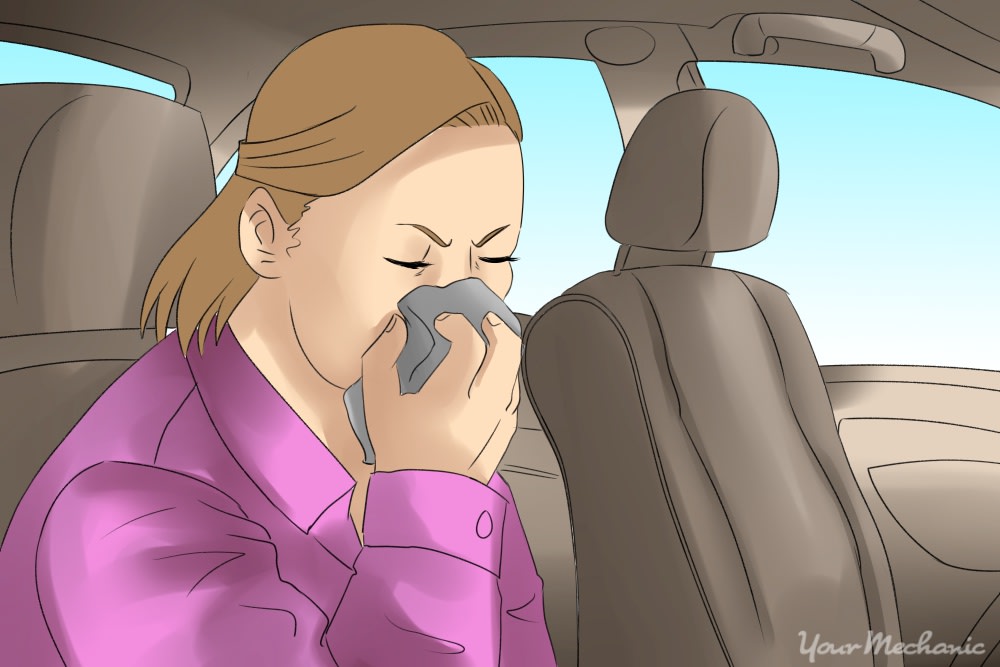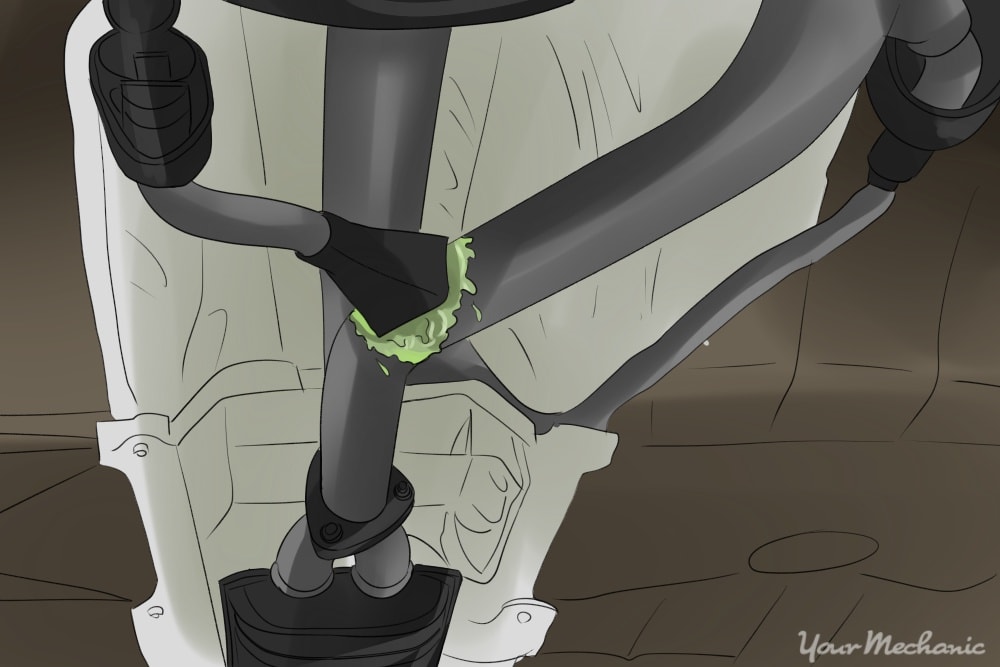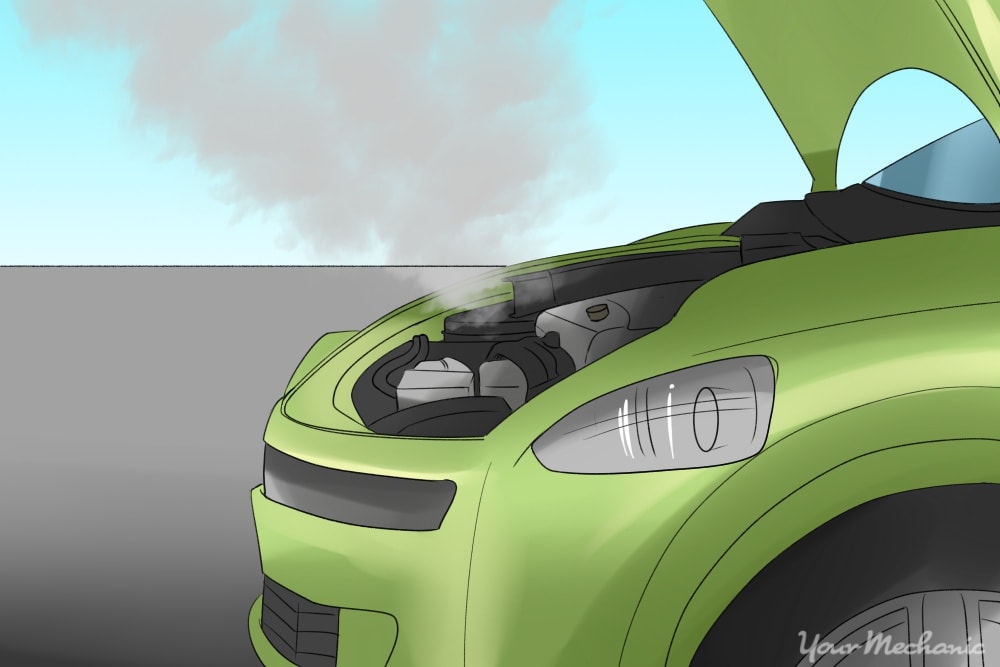

It can happen over time or it can be sudden. You can slowly start to pick up an odd smell from your car, or you may get into it one day and there it is, a strong, strange smell. The smell may be bad, it may smell good, or may simply smell strange. Some smells can be an indication of something that is failing or has failed. A mechanic can diagnose many smells that comes from your car simply from experience. Knowing what some of these smells may be can help you identify a problem, or it can be a warning to you to get the vehicle checked out.
Part 1 of 4: Where the smells can come from
There is a seemingly unlimited number of smells that can come from your vehicle. Odors can come from many different places:
- Inside of the vehicle
- Outside of the vehicle
- Under the vehicle
- Under the hood
Smells can occur for different reasons:
- Worn parts
- Excessive heat
- Not enough heat
- Leaks (internal and external)
Part 2 of 4: Inside of the vehicle
The first odor that will typically get to you is something on the inside of the vehicle. Being that we spend so much of our time inside of the car this tends to bother us the fastest. Depending on the smell it can come from a number of different places for any number of reasons:
Odor 1: A musty or mildew odor. This is typically an indication of something wet inside of the vehicle. The most common cause of this is wet carpet.
The most common area for this to occur is from under the dash. When you run the AC system it builds up water inside of the evaporator box under the dash. The water is supposed to drain to the outside of the vehicle. If the drain is clogged it ends up overflowing into the vehicle. The drain tube is typically located on the passenger side firewall and can be cleaned out if it is clogged.
Water can leak into the vehicle vehicle from body leaks. The leak can come from any of the weather stripping around the doors or windows, from the body seams, or from sunroof drains that are clogged.
Some vehicles have issues with the AC system that will cause this smell. Some vehicles were built without using a protective coating on the AC evaporator in the dash. When using the AC the condensation will accumulate on the evaporator. When the vehicle is turned off and sits for a while after being turned off this moisture will then smell.
Odor 2: A burning smell. A burning smell from the inside of the vehicle is typically caused by a short in the electrical system or one of the electrical components.
Odor 3: A sweet smell. If you get a sweet smell inside of the vehicle, that is typically caused by a coolant leak. Coolant has a sweet smell, and if the heater core inside of the dash eaks, it will leak into the vehicle.
Odor 4: A sour smell. Most of the time a sour smell is something that is caused by the driver. This is typically an indication of food or beverages that may be spoiling in the vehicle.
When any of these odors occur, the basic fix is to repair the problem and dry out or clean the vehicle. If the fluid did not damage the carpeting or insulation it can typically be dried out and the smell will subside.
Part 3 of 4: Outside of the vehicle
Odors that occur on the outside of the vehicle tend to be the result of an issue that is occurring with the vehicle. It may be a leak or a part that is worn out.
Odor 1: A rotten egg or sulfur smell. This smell is typically caused by a catalytic converter in the exhaust that is getting too hot. This can occur if the engine is not running correctly or if the converter is simply failing. If it is, you should have it replaced as soon as possible.
Odor 2: A burning plastic smell. This typically occurs when something has come in contact with the exhaust and it melting. This can occur if you run over something on the road, or if a part of the vehicle comes loose and contacts a hot part of the engine or exhaust.
Odor 3: A burning metallic smell. This is typically caused by either brakes that are getting too hot or a clutch that is failing. The clutch disc and the brake pads are made of similar materials so when they are worn or if they have a failure you will get this type of smell.
Odor 4: A sweet smell. Just like on the inside of the vehicle, a sweet smell indicates a coolant leak. If the coolant is leaking onto a hot engine or if it is leaking on the ground then you will typically be able to smell it.
Odor 5: A hot oil smell. This is a clear indication of an oily substance burning. Typically this is caused by either engine oil or another oil within the vehicle leaking and getting on a hot engine or exhaust system. This is almost always accompanied by smoke that will come from the engine or the exhaust.
Odor 6: A gas smell. You should not smell gas when driving the vehicle or when it is parked. If you do then there is a fuel leak. The most common leaks are the top seal on the fuel tank and the fuel injectors under the hood.
Any of these smells that occur when operating your vehicle are a good indication that is it time to have the vehicle inspected.
Part 4 of 4: After the source of the smell is found
Once you find the source of the smell, a repair can be made. Whether the repair requires that something be cleaned, or if something more serious needs to be replaced, noticing that smell will allow you to keep the issue from causing further problems. If you are not able to locate the source of a smell, hiring a certified mechanic to locate the smell is the next best step.







